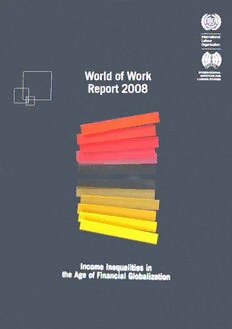
World of Work in Transition: Growing Social Inequalities PDF
178 Pages·2009·1.373 MB·English
Most books are stored in the elastic cloud where traffic is expensive. For this reason, we have a limit on daily download.
Preview World of Work in Transition: Growing Social Inequalities
Description:
Income inequalities have been growing significantly within countries over the past two decades. This new report from the International Institute for Labor Studies presents a timely discussion of inequality issues in a nontechnical manner, using new data and economic analyses and with full technical annexes. It assesses the extent of this phenomenon and its sustainability, analyzes factors at work, and examines the extent to which inequalities may worsen as a result of the ongoing food and financial crises.The report provides a broad overview of the state of social inequalities in the world, in particular labor income versus profits, and the highest incomes versus the incomes of the poorest families. In addition, it assesses how the current agricultural crisis may affect inequalities in coming years. Examining current patterns of inequality, the report looks at whether these are sustainable from the point of view of social cohesion, economic growth, and migration flows.The authors shed light on the causes of excessive inequality, notably the possible role of financial market deregulation. They pay special attention to the social impact of the subprime crisis. They also examine the extent to which traditional policies and institutions can still address excessive market-driven inequalities. They ask whether traditional redistribution systems (taxes and welfare support) are being eroded as a result of a general trend toward lower taxation on high incomes. In conclusion, the report considers policy reforms that could reduce the risk of rising inequalities while at the same time maintaining economic dynamism.
See more
The list of books you might like
Most books are stored in the elastic cloud where traffic is expensive. For this reason, we have a limit on daily download.
